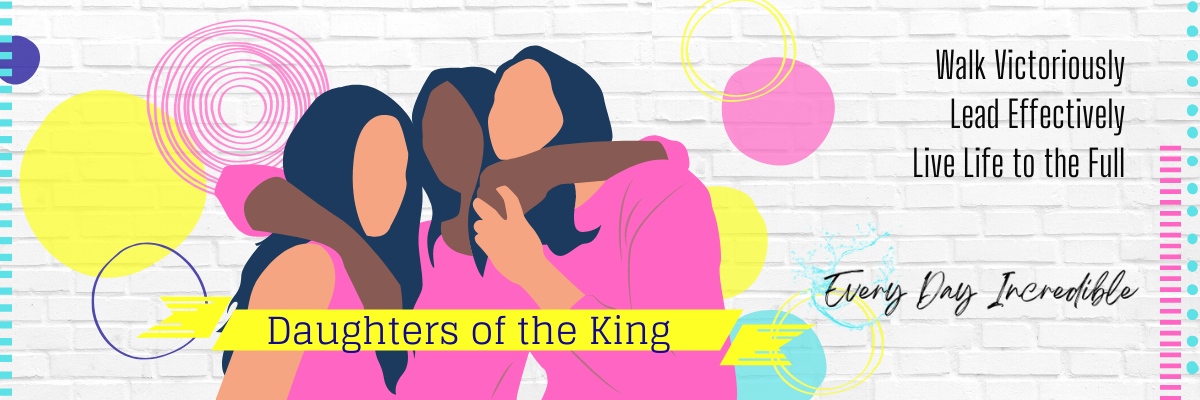In this series, we’re talking about our identity as Children of the King. We’re talking about understanding who we are in Christ and what that means for us.
Have you ever been a victim? Maybe you’ve gone through something traumatic that has left you feeling like things were never going to go your way again, or maybe that life is just so hard and will never get better.
Being victimized in some way can really take a toll on you! It can make you feel like you don’t deserve better. It can make you feel like life’s not going to get better.
It affects how you view yourself, who you trust or don’t trust… it can make you feel like you’re alone, or maybe that you’re selfish for still struggling with how you feel; it can make you feel very confused. It can affect your identity (especially when others have expected you to “move on”). It can really impact your ability to feel like there’s still hope in the world, or maybe your ability to just give yourself time and grace and be able to work through those things that have happened to you at your own pace with God’s help.
Being victimized in some way can impact everything- every area of your life. Not only does it affect your outlook, but it can affect how you let people treat you.
Now, I’m NOT saying that if someone abuses you, that anybody else who abuses you is your fault. If you identify as a victim and that’s how you see it, then it can really limit your ability to thrive. It can limit your ability to grow and allow yourself to move on from that situation, and it can even affect how other people react to you because if you see yourself as a victim and treat yourself as a victim, then others are going to be more likely to too. If you are not setting healthy boundaries for yourself, it can open the door for other people to walk all over you. You don’t deserve that! You deserve so much better. There’s a chart that I often use with my clients. I don’t know the original source of that chart actually is, but I’m happy to share a link with you to one of the ones that I have found.
The chart breaks it down into three columns. The first column lists characteristics of a victim, and it includes things like: feeling hopeless and feeling like you don’t deserve better, maybe feeling confused, putting your own needs last, being hurt by unsafe others. The next column talks about characteristics of those who are survivors. Those who have gone through something traumatic, but they’re starting to move forward. They’re allowing themselves to open up to the idea that maybe things can get better; they’re starting to look for people who are safe to share a little bit of their story with, because if you have gone through something traumatic, you know it can be really hard to do that. You don’t know how someone else is going to react. You don’t automatically know who’s safe and who’s not. When you are becoming a survivor, you can share a bit, then check to see how the reaction is, and share a little bit more if you feel safe. You don’t have to share your whole story with everybody you come in contact with. That’s your story to tell. At the same time, there’s a lot of power in telling your story, because then, you’re in control of the story and it’s not in control of you.
The third column talks about being a thriver. One who thrives is one who is able to look at the world with fresh eyes and be able to see that not every situation is dangerous; that you don’t have to fear everything that happens Even though, yes, something horrible happened, there’s still good in the world. There are still good things that could happen to you, and you’re open to that!
A thriver will see themselves as a miracle. That you’ve gone through the things you’ve gone through, and you managed to get through that with God’s help! A thriver recognizes that it’s okay to take care of yourself and you don’t have to feel guilty about that. A thriver is going to recognize that it’s okay to protect yourself, to take care of yourself, and not put yourself into positions that are unsafe- to have healthy boundaries.
From a spiritual perspective, you have an enemy that studies you and wants to destroy you. It’s real. So, when something happens that leaves the door wide open for that input, you know that the father of lies is going to lie to you. It’s in his character. So, if as a result of the traumatic or hurtful things that have happened to you, you’re telling yourself that you’re not worthy of God’s love, or that nobody else is gonna like you, or “if they only knew the things I’ve done, they wouldn’t have anything to do with me” – whatever the lie is that’s been bouncing around in your head and growing roots into your soul, it’s from the enemy. That’s not who you are. We all make mistakes. We’ve all sinned. Scripture tells us that!
Those thoughts that have been planted by the enemy, that have taken root and have become your identity… that garden needs to be weeded! That’s not who you are!
Like we said in our last video, you are not defined by your experiences, or your mistakes, or your choices, you are defined by your Creator. When you start to realize what that means for you and how loved you are, everything can change. When you realize what lies the enemy has planted in your thoughts, try verbally renouncing that. For example, say, “I now recognize that the belief that I am not worthy of God’s love is a lie from the enemy, and I choose in this moment to not believe or be bound by it.”

